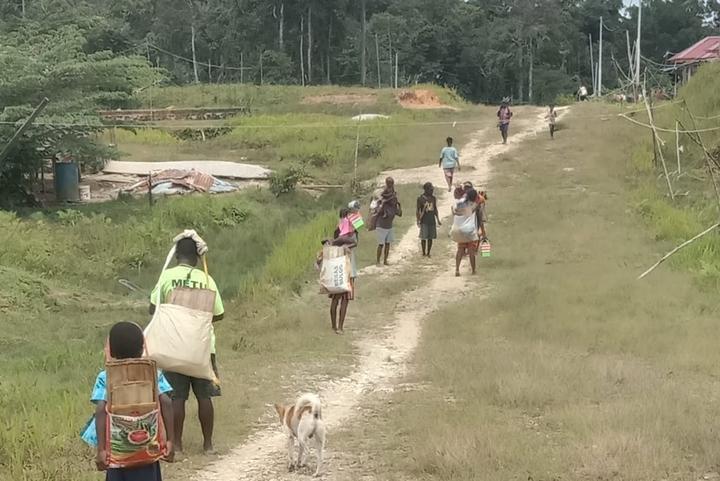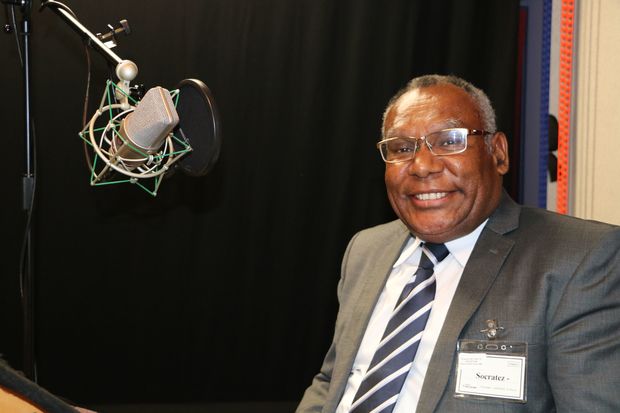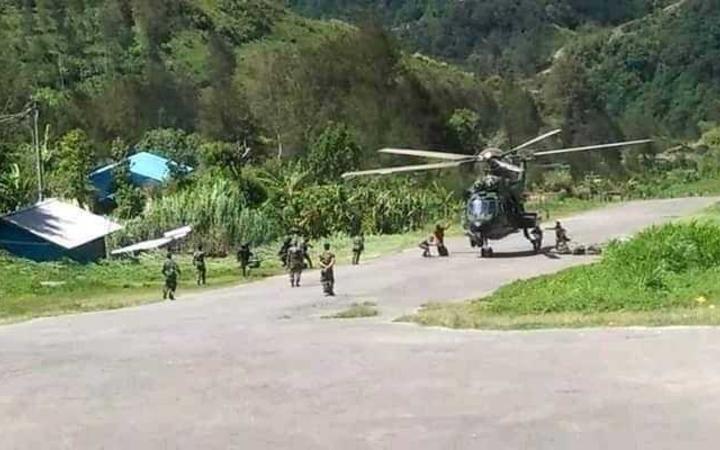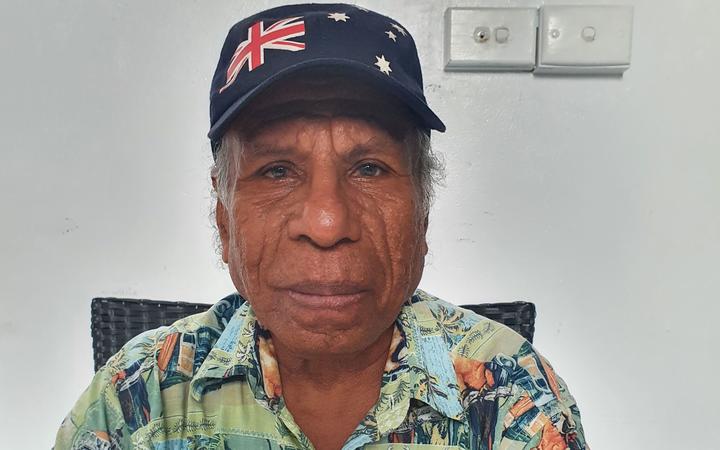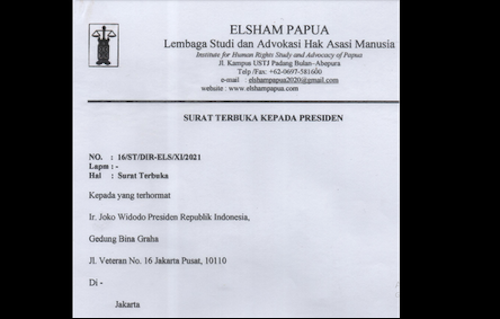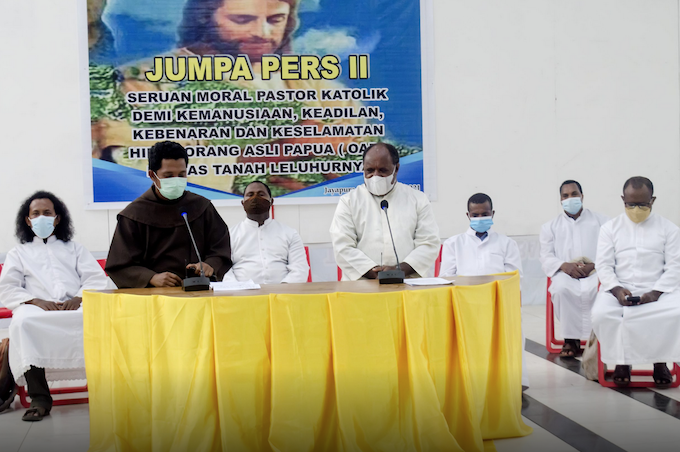By Finau Fonua, RNZ Pacific journalist
The West Papuan Council of Churches says New Zealand hostage pilot Phillip Mehrtens’ life is in danger if negotiations do not take place with the West Papua Liberation Army (TPNPB).
The council is calling on Indonesian President Joko “Jokowi” Widodo to cease military operations in West Papua and seek dialogue with TPNPB.
Chief moderator Reverend Benny Giay said they are sending a letter to President Widodo.
Since the kidnapping of 37-year-old pilot Phillip Mehrtens on February 7 by TPNPB local commander Egianus Kogoya, violence has escalated between the Indonesian Army and the guerrilla TPNPB, with both sides reporting military and civilian casualties as a result.
“Egianus Kogoya could shoot the pilot,” Reverend Giay said.
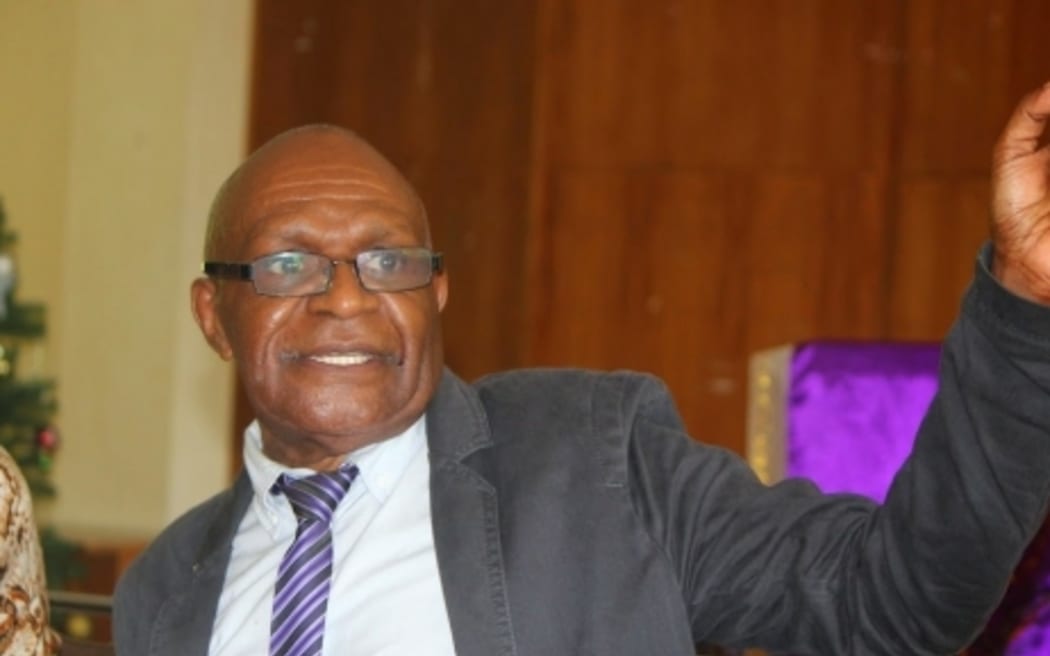
“In order to stop that, the Indonesian government has to take a peaceful approach,” he said.
“We are asking the Indonesian president to withdraw the military and to allow the church to go in and to dialogue with the TPNPB for the release of the pilot.”
Peaceful talk plan ‘ignored’
“We know that the TPNPB leader has proposed a kind of peaceful talk, but the government has not responded, and we are asking this through our letter, the TPNPB have proposed a peaceful talk…so why can’t you [President Widodo] take it?” Rev Giay said.
But Indonesian authorities say they are pursuing a “peaceful dialogue” to the crisis.
Commander of the Indonesian National Armed Forces Admiral Yudo Margono told local reporters in Sulawesi last week that they were being cautious.
Indonesia news agency Detikcom reported Admiral Margono saying on June 7: “We still prioritise [negotiations] carried out by religious leaders, community leaders and PJ regents there,” he said.
“If we prioritise operations with the military, of course, there will be many negative impacts on public safety,” he added.
It was a message repeated late last month by Papua Police chief Mathius Fakhiri.
“I talked to various parties about this negotiation process including the Church, which includes the Church Council and the Bishop who will do as much as possible to negotiate with the Egianus Kogoya group to be able to release the pilot,” Fakhiri told Detikcom on May 25.
“I opened myself to all parties, from the beginning, namely the Nduga government in collaboration with the Chief of Police and then there were also parties from Komnas HAM who offered themselves and we accepted,” Fakhiri added.
Church leader claims Indonesia ‘not taking us seriously’
However, Reverend Giay said the church could not mediate a dialogue unless the Indonesia military ceased its operations.
“The Papuan police chief has agreed that church [negotiators] should go in and talk with Egianus . . . but that means the military has to be withdrawn from the area [and] that has not been done yet,” Reverend Giay said.
“As of now, I cannot guarantee anything about church involvement because as of now the government is not taking us seriously,” he claimed.
Both Indonesia’s military and TPNPB have confirmed shootouts in the Nduga Regency of the remote highlands of Papua.
Indonesian authorities have confirmed the deaths of four Indonesian soldiers as a result of the fighting.
Reuters reported two weeks ago that the TPNPB released a video of Merhtens saying he would be shot in two months if the group’s demands were not met.
“If they [Indonesia] do not allow the church to go in and mediate, we will conclude that they are involved in the possible death of the pilot,” Reverend Giay said.
“From our discussions here, we think the conditions of the pilot may be worsening.
“We want to see the pilot . . . for Egianus to show us that he is okay…that is our first priority.”
Mehrtens’ welfare ‘top priority’ for MFAT
According to New Zealand’s Ministry for Foreign Affairs, everything is being done to try and seek Mehrtens’ release, but the details of this have been limited.
The TPNPB maintains that New Zealand has not approached them for negotiation.
“The welfare of the New Zealander at the heart of this situation is our top priority,” MFAT told RNZ Pacific in a statement in March.
“We are doing everything we can to secure a peaceful resolution and the safe release of the hostage, including working closely with the Indonesian authorities and deploying New Zealand consular staff.”
Reverend Giay said Wellington needed to pressure Jakarta into ceasing its military operations.
“New Zealand government and the international community has to pressure the Indonesia government and military to seek a peaceful dialogue.”
“That is only possible if the Indonesian military withdraw,” he added.
This article is republished under a community partnership agreement with RNZ.
This post was originally published on Asia Pacific Report.
